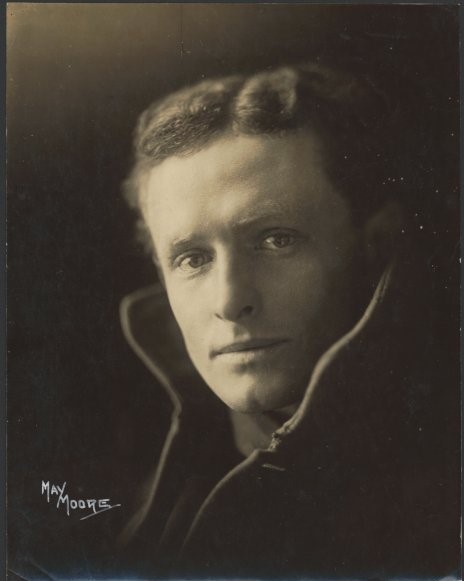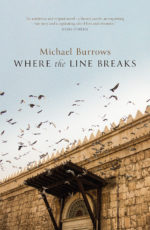Where the Line Breaks author Michael Burrows writes about some of the forgotten stories that inspired his novel and deserve to be commemorated this Remembrance Day

This Remembrance Day, I thought I’d share a few of the things I discovered while researching my novel Where the Line Breaks that I think deserve to be a little better remembered.
My initial idea was to write about a real life Australian war poet, romanticising and fictionalising his or her life in a straightforward war novel with all the requisite bells and whistles. That idea soon fell by the wayside when instead of using a real person as a starting point, I created the ‘Unknown Digger’, an anonymous Australian soldier poet whose identity remains a mystery.
The research period was one of my favourite parts of the writing process. Luckily, creating a fictional war poet required just as much research as finding a real one. I could have easily kept my head down examining primary sources for years and never written the book because of the sheer amount of incredible stories uncovered by a little digging.

For example, Leon Gellert: my favourite Australian war poet (and a big inspiration for the ‘Unknown Digger’). Gellert was born in Adelaide in 1892 and landed on Gallipoli on that first Anzac Day, was injured three months later, and though he attempted to re-join the fight, was repatriated as ‘medically unfit’ in June 1916. Maybe that’s why he isn’t better known – he didn’t have the tragic death of Rupert Brooke or Wilfred Owen to propel his poetry into school books and movies and the public imagination. He died in 1977 at 85 years old. But his poetry is wonderful, and he has been recognised as ‘the only Australian poet whose work can be compared with that of the leading soldier-poets of the World War’. My personal favourite of his poems is ‘Anzac Cove’, which ends with these devastating closing lines:
There are lines of buried bones:
There’s an unpaid waiting debt:
There’s a sound of gentle sobbing in the South.
Or what about Oliver ‘Trooper Bluegum’ Hogue, whose poem ‘The Horses Stay Behind’ might be remembered by faithful historians and animal lovers, but his books deserve to be better known, if only for some of their wonderful titles: Love Letters of an Anzac, The Cameliers, and The Home-Sick Anzac and Other War Verses. Those titles alone tell multiple stories, and inspired so many aspects of my own novel that an alternate title could very easily be The Love-Sick Anzac Camelier …
And then there are the books waiting to be discovered: the hard to find self-published histories, the family memoirs given to me by the author’s granddaughter, or the beautiful collection of true stories entitled Silk and Barbed Wire compiled by the Royal Air Forces ex-Prisoners of War Association. At an Anzac Day ceremony in Mosman Park one year, I was lucky enough to be given a signed copy of this wonderful book by a former RAF pilot and ex-prisoner of war whose own funny, heart-warming story was contained within. I own many signed books (too many, our bookshelves might argue), but few of the signatures contained within their pages mean as much to me as that one.
The memories relayed in Silk and Barbed Wire are alternately heart-breaking, fascinating, and – more often than not – hilarious (one is simply titled ‘Never Volunteer!’). Though they are all about the Second World War, this book was hugely inspirational for my First World War story, and convinced me that it was vital to include a lot of humour in my own novel, no matter how dire the circumstances.
These are just a few of my favourite discoveries, but there are thousands more waiting to be shared, and I love to hear from readers with their own unique stories to reveal. The solemn silence of Remembrance Day can often seem dignified and imposing, but telling stories, cracking jokes and reciting poetry are all equally valid ways to remember such an important part of our history.
Where the Line Breaks was shortlisted for the Fogarty Literary Award. It is available in all good bookstores and online.



